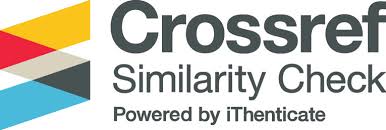Oral Short-course Antibiotics Compliance Survey at Several Public Health Centres in Surabaya
Abstract
Patients compliance is commonly occured in short-course antibiotics therapy. Patients compliance not only contributed to the therapeutics effect but also to prevent antibiotics resistance. Qualitatively, uncompliance in using antibiotics is affected by patients knowledge about antibiotics, improving symptomps, false in interpretating drug labels, activities, the lack of family suppor, and the lack of information given by healthcare provider. This study was aimed to observe patients compliance in using antibiotics assessed in how and howmany times they take their dosage, how they give interval between the doses, and whether they complete their course or not. The reasons behind their behaviour also investigated in this study. The survey was conducted at three public health centres in Surabaya. Patients who received short-course (3-5 days) antibiotics therapy were asked to participate in this study. The compliance was assessed using online developed self-assessment questionnaire containing 17 questions asking how they use their antibiotics and how many pills left sent in the last dosage day. The antibiotics prescription data was recorded as a refference in evaluating patients compliance.During research periods, a total of 100 patients were enrolled in this study. Of that, there were only 12.0% categoryzed as compliant. Most of patients did not give the same time interval between their doses (63,0%) and did not finished or prolonged their course (46,0%). The majority reasons behind their behaviour was feelings better or improving symptomps and simply forgot to take their antibiotics. A strengtnen in counselling and monitoring during their antibiotics course is needed in order to increase their compliance.













